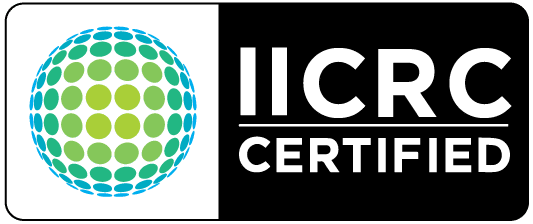January 20th, 2019
If you’re a homeowner in New Jersey, you know the importance of oil tank removal and remediation by now. To protect the environment and your property, it is recommended that all underground oil tanks which are out of service be removed by certified professionals. The process only takes about 3 to 4 hours to complete and can alleviate a lot of headaches and expenses. But what happens after the tank has been removed?
What Usually Happens After an Oil Tank is Removed
Soil Testing
Once the oil tank has been properly emptied, cleaned and removed from the excavated site on your property, there are a few things that will happen. First, the underground storage tank will be inspected for evidence of rust, corrosion, and holes by the contractor. Then, the area official will inspect and either pass or fail based upon evidence of contamination. Soil samples will be collected and processed based upon the local official’s determination.
The samples collected are then sent to an independent licensed laboratory for analysis. In New Jersey, standard analytical testing is used to check for concentrations of heating oil in the soil. The soil testing process usually takes about 5-7 business days to complete.
Tank Removal Certificate
The New Jersey Department of Environmental Protection and the EPA do not have a standard document, but the independent removal company can provide certification. Homeowners should request this certificate after the tank has been removed from the property. It is proof that the unused tank has been properly removed, attests to the integrity of the tank and that no leak was found at the site.
Backfill
After tank removal, if the inspector has found no evidence of a leak or contamination, the hole can be backfilled with clean soil. A respectable tank removal company will have certified clean soil ready to fill the excavation and restore your property to grade. Meridian Environmental always limits damage to landscaping and tries to make our customer’s yard look like it did before work began.
Disposal of the Tank
If the tank shows no signs of a leak, the removal company will then transport it to a salvage facility licensed by the state of New Jersey.
What to Do if a Leak Is Verified
Unfortunately, old and abandoned residential heating oil tanks can rust and leak into the soil underground. The steel of the tank and piping tend to corrode over time, creating holes for the oil to leak out. Some customers have also experienced leaks when fill pipes were damaged by a lawnmower or tools used to dig in their yard. This isn’t necessarily a big problem if the leak is addressed right away.
New Jersey, like other states, has a permissible amount of oil that can be verified in the soil samples. Trace amounts are accepted. However, higher concentrations of oil will require remediation of the affected soil and possibly groundwater – at the property owner’s expense. This is why soil testing is very important. If a hole or a leak is remediated quickly, it can save you a lot of trouble and reduce the cost of the project.
If any amount of oil has leaked on your property, you must report it to the New Jersey Department of Environmental Protection. As soon as it’s detected, you should call the environmental action line: 1-877-WARN DEP (1-877-927-6337). The department will provide you with information about your responsibilities as a homeowner and can refer you to a removal and remediation company, like Meridian Environmental.
Estimate the Damage
Further testing of soil samples and groundwater samples may also need to be needed. All relative samples will be tested by a certified laboratory according to New Jersey state regulations.
Further Testing
Further testing of soil samples and groundwater samples may also need to be needed. All relative samples will be tested by a certified laboratory according to New Jersey state regulations.
File a Claim with Homeowner’s Insurance
As soon as a leak has been discovered, you should file a claim with your homeowner’s insurance. Policies usually require timely notice of a claim and will likely request additional information and documentation of the issue. Not all types of property insurance cover the costs of oil tank leaks and contamination cleanups, and many companies have exclusions in their policies.
Seek Financial Assistance
New Jersey has created grant and loan programs to help homeowners with remediation expenses. Find out if you qualify for state financial assistance.
Remediation & Clean Up
If a leaky oil tank has been removed from your property, you will need a qualified environmental contractor to complete the remediation process. New Jersey requires that the leaking tank and contaminated soil be properly removed and disposed of. If a groundwater investigation is needed, remediation may require oversight by a DEP case manager.
For Information and Assistance with Oil Tank Removal
Contact Meridian Environmental Services. We are certified by the State of New Jersey and specialized in locating and removing underground and aboveground tanks. Our services include tank sweeps, tank removals, remediation of contaminated soil and groundwater for all New Jersey residential and commercial properties. Contact us to request a quote at (732) 281-1900 or fill out the online quote request form.




